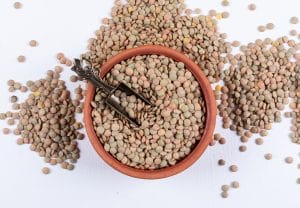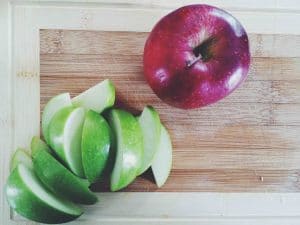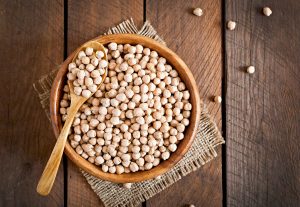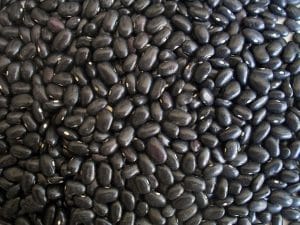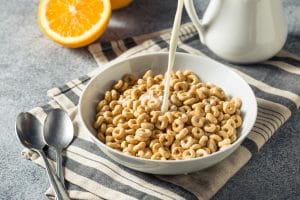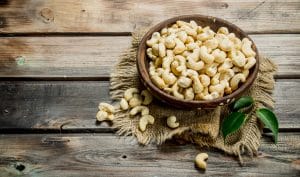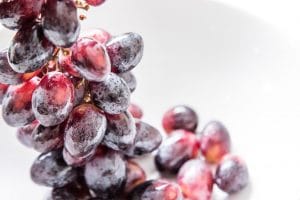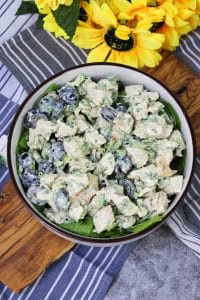Are Avocados Low FODMAP?
Important Note: When you buy through our links, we may earn a commission. As an Amazon Associate we earn from qualifying purchases. Content, pricing, offers and availability are subject to change at any time - more info.
FODMAPs has been a fairly common phrase in recent years, referring to a group of foods that may be particularly problematic for persons who suffer from Irritable Bowel Syndrome. FODMAPs is an abbreviation for a group of carbohydrates that have been shown in multiple studies to create problems for people with Irritable Bowel Syndrome.
Avocados have high levels of Sorbitol, which is a type of sugar alcohol. This means that they are not considered a low FODMAP food. However, if eaten in small amounts such as thirty grams (around 1/8 of an avocado), most people will not present with any major digestive issues.
Fermentable Oligo-, Di-, Mono-, and Polyols are referred to as “FODMAPs.” This is where the acronym comes from, and it refers to a group of fermentable carbohydrates that might cause digestive problems in IBS patients.
Are Avocados Low FODMAP?
Avocados are not considered a low FODMAP food due to high levels of the sugar-alcohol Sorbitol. Whether a specific food is considered low FODMAP or high FODMAP depends on a threshold.
As soon as a food contains any of the FODMAPs above a certain level, it is then considered a high FODMAP food and should be avoided by anybody with IBS. Certain foods have high levels of FODMAPs at a certain serving size, while they have a lower level at a smaller serving size.
With what is considered a full serving of avocado, which is around one full avocado or 80g, you will find high levels of Polyol-sorbitol. Therefore, you should avoid intake of this if you are prone to malabsorption of Sorbitol.
If we look at a half-sized serving of avocado, which is about ¼ of an avocado or 45g, there are only moderate amounts of polyol-sorbitol. This means that you should still avoid intake if you are one who malabsorbs Sorbitol; however, you might not have any major issues.
A low serving of avocado is around 30g, or an eighth of an avocado. This amount is considered low in FODMAPs and should be tolerable to the majority of people who usually present with IBS symptoms.
An important consideration is that while the fruit of the avocado tends to contain FODMAPs, the oils made from the fruit do not. Oils, in general, do not contain the carbohydrates associated with their respective oils, and so there is little concern here over FODMAP ingestion.
Defining High FODMAP Foods
There is a technique that evaluates the levels of FODMAP carbohydrates in order to distinguish between low and high FODMAP foods, and there is a threshold at which foods are classified as low or high FODMAP.
The criterion for oligosaccharides is 0.3 grams of either fructans or galacto-oligosaccharides (GOS). When it comes to Disaccharides, 4 grams of lactose is the critical threshold.
When it comes to monosaccharides, if there is 0.2 grams more fructose than glucose, the diet is deemed high FODMAP. When it comes to Polyols, foods with 0.3 grams or more of mannitol or Sorbitol are considered high FODMAP.
Two colleges have conducted considerable research into FODMAP meals, and they have meticulously defined what constitutes a high FODMAP food. Monash University and King’s College London are the two universities in question.
It’s important to keep in mind that not everyone should avoid FODMAPs. These food groups can be particularly beneficial to some people and should not be avoided in this situation. Individuals who can stomach these foods may experience food shortages if they avoid them.
If you can’t handle high FODMAP foods, you should substitute a low FODMAP replacement for any high FODMAP foods to maintain adequate nutrition in your diet.
Why Should Certain People Avoid FODMAPS?
FODMAPs, on the whole, tend to be poorly absorbed by the small intestine. They move slowly and attract water while they travel through the small intestine. Next, in the large intestine, FODMAPs are fermented by certain bacteria, which in turn causes the release of gas.
When combined with the increased water as well as gas, resultant symptoms such as flatulence, diarrhea, and bloating tend to occur in people who are intolerant to these foods, which are mostly the sufferers of IBS.
It’s important to note, however, that not everybody who suffers from IBS will necessarily react to all of the different FODMAP groups. This is why it’s essential to consult a professional dietitian in order to establish which of the FODMAP foods are the main causes of your adverse symptoms.
Health Benefits of Avocados
Due to their excellent health benefits, avocados are a great food if you are able to tolerate them. They are especially high in fiber, which means that you will benefit greatly from eating avocados if you are able to tolerate them.
Whatever quantity of avocado you are able to eat without aggravating your digestive symptoms will be highly beneficial to you, with the combination of fiber and dietary fat contributing enormously to your healthy gut flora.
Avocados contain good amounts of B vitamins, potassium, vitamin C, and magnesium. One serving of avocado, for example, can give you 25% of your daily requirements of vitamin C.
When referring to dietary fiber, avocados boast around 10 grams which equals around 40% of your requirements for the day. Avocados are also a brilliant source of plant-based protein, as well as the healthy kind of monounsaturated fats.
The right kinds of monounsaturated fats are purportedly able to bring down levels of blood cholesterol as well as triglyceride levels. If added to salads and salsas, avocados are thought to boost the levels of carotenoids that are able to be absorbed from the veggies in your meal.
Suggestions For Eating Avocado On a Low FODMAP Diet
In order to enjoy all the health benefits (and the great taste) of avocados without any of the adverse reactions, there are certain ways in which to incorporate this fruit into your diet at a small portion size in order to keep down the FODMAP levels.
A great way to do this is to add the recommended low portion (30g) to your smoothies. The taste will hardly be detectable, but it will add a delicious creaminess to your smoothies while simultaneously providing all the associated health benefits.
By adding a small portion of avocado to your vinaigrette, you can make a deliciously creamy and wholesome salad dressing. You can always use avocado as a simple sandwich spread, allowing you to enjoy the taste without eating too big a portion.
While full servings of avocado do not come highly recommended on a low FODMAP diet, you should still be able to enjoy eating avocado in small portions by incorporating it into your diet in creative ways.



